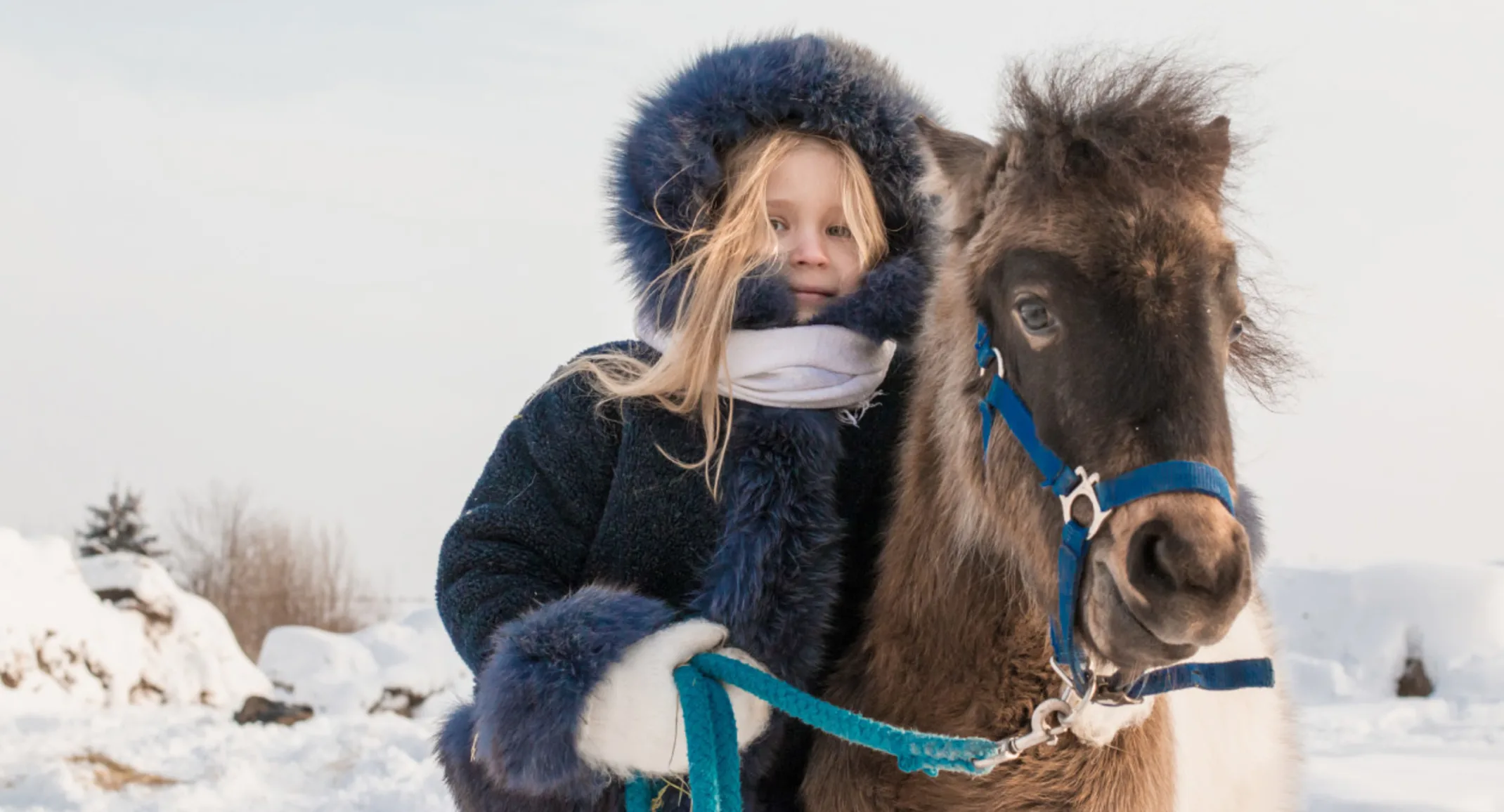Winter Preparation
General

In recent mornings, we’ve all felt a chill in the air & know that winter is fast approaching. In anticipation of the weather that will follow, we should be preparing our horses for winter now. Preparation ahead of time may save you and your horses from much discomfort this winter.
First, make sure your blankets are clean, are in good repair, and properly fit your horse. It would have been ideal if the blankets had been cleaned and repaired in the spring so that you didn’t have to worry about it at this time of year when their use is imminent. A dirty, ill-fitting blanket can cause a number of problems in your horse, ranging from muscle soreness and stiffness to severe rubs and pressure sores.
Check your horse’s weight as the cool weather comes upon us. If it seems a bit underweight, now is the time to increase his feed so that it begins to gain weight. It is extremely difficult to put weight on a horse during the cold weather because it has to expend more energy to keep warm. It is much easier on the horse and you to have it start the winter at a healthy weight. If you have trouble getting it to gain weight, have your veterinarian perform a complete physical exam to determine if the horse has any health issues that need to be addressed before the coming bad weather.
Fresh, clean, ice-free water is a must for all horses in the winter. The simplest method to accomplish this is to use a heater in your water troughs. Make sure you test the heaters before they’re absolutely needed to make sure they are in good working order and that the wires haven’t been damaged. Damaged wires can electrify the water and give the horses a very unpleasant and dangerous zap when they go to drink. This will obviously cause them not to drink and will lead to dehydration and other problems associated with it.
Consider removing your horse’s shoes if you will not be riding this winter. Removing its shoes for a portion of the year allows its feet to expand and its frogs to naturally contact the ground. In the end, it should result in better quality hoof wall and tougher soles when the shoes are put back on in the spring. In addition, barefoot horses are better able to negotiate slippery, icy footing than horses wearing metal shoes. The natural traction and expansion of the hoof wall allows the horse to grip the ground and prevents the build-up of “snowballs” in its feet. If you choose not to remove its shoes, make sure that you check the horse's feet twice daily for the presence of snowballs and remove them. These icy build-ups greatly increase its risk of injury.
If there are any low spots that hold water in your fields, drain them or fill them in if possible. In the winter, the water in these areas will freeze causing a hazard for your horses. It is possible for a horse to easily fall and break his leg on an ice patch or to sustain a nasty wound if its leg goes through the top layer of ice.
Make sure your barn has a number of shovels that are easily accessible. Having pasture gates and barn doors drifted shut and water troughs snowed over was a problem many of us dealt with in the past. Being able to efficiently dig out doors and gates allows you to better care for your horses during the bad weather. If the snow is very deep, you may have to assist small ponies and less adventurous horses by digging a path from their run-in shed to their water trough to their hay feeder to ensure that they have adequate food, water, and shelter during the bad weather.
Assure yourself that you have an adequate amount of hay to make it through the winter. The middle of a snowstorm is not the time to realize that you are in immediate danger of running out of hay. Stock up now as good quality hay becomes difficult to find as we get closer to winter.
Be sure to check your barn closely for structural soundness before the bad weather is upon us. Snow is very heavy and can cause roof and barn collapse if enough of it accumulates on the roof. Have a plan for removing snow from your barn roof so that you don’t have to worry about a possible collapse. Horses have been severely injured or killed when their barns collapsed due to the weight of the accumulated snow. If you’re afraid that your barn won’t make it through a large storm, turn the horses out in to a field, preferably one with a run-in shed. A bit of cold, snow, and wind is less likely to affect them than a collapsing barn. With proper preparation now, you and your horses are likely to make it through the winter in good shape.
Michelle Egli, DVM
Delmarva Equine Clinic
